Was Shakespeare a woman?
Since William Shakespeare lived more than 400 years ago, and many records from that time are lost or never existed in the first place, we don't know everything about his life. For example, we know that he was baptized in Stratford-upon-Avon, 100 miles northwest of London, on April 26, 1564. But we don't know his exact birthdate, which must have been a few days earlier.
We do know that Shakespeare's life revolved around two locations: Stratford and London. He grew up, had a family, and bought property in Stratford, but he worked in London, the center of English theater. As an actor, a playwright, and a partner in a leading acting company, he became both prosperous and well-known.
William Shakespeare was probably born on about April 23, 1564, the date that is traditionally given for his birth. He was John and Mary Shakespeare's oldest surviving child; their first two children, both girls, did not live beyond infancy. Growing up as the big brother of the family, William had three younger brothers, Gilbert, Richard, and Edmund, and two younger sisters: Anne, who died at seven, and Joan.

Episode: File 0001/0002: Rushing to Brittany with a Shake
Release Date: October 31 2020
Researched and presented by Halli
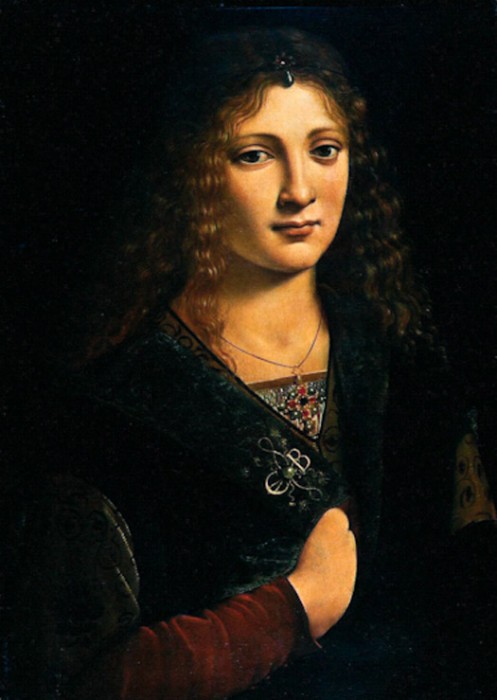
Shakespeare, as the son of a leading Stratford citizen, almost certainly attended Stratford's grammar school. Like all such schools, its curriculum consisted of an intense emphasis on the Latin classics, including memorization, writing, and acting classic Latin plays. Shakespeare most likely attended until about age 15.
A few years after he left school, in late 1582, William Shakespeare married Anne Hathaway. She was already expecting their first-born child, Susanna, which was a fairly common situation at the time. When they married, Anne was 26 and William was 18.
Shakespeare's only son, Hamnet, died in 1596 at the age of 11. His older daughter Susanna later married a well-to-do Stratford doctor, John Hall. Their daughter Elizabeth, Shakespeare's first grandchild, was born in 1608. In 1616, just months before his death, Shakespeare's daughter Judith married Thomas Quiney, a Stratford vintner. The family subsequently died out, leaving no direct descendants of Shakespeare.
For several years after Judith and Hamnet's arrival in 1585, nothing is known for certain of Shakespeare's activities: how he earned a living, when he moved from Stratford, or how he got his start in the theater
Following this gap in the record, the first definite mention of Shakespeare is in 1592 as an established London actor and playwright, mocked by a contemporary as a "Shake-scene."
He died on April 23, 1616-the traditional date of his birthday, though his precise birthdate is unknown. We also do not know the cause of his death. His brother-in-law had died a week earlier, which could imply infectious disease, but Shakespeare's health may have had a longer decline. https://www.folger.edu/shakespeares-life

The general consensus is that Shakespeare wrote thirty-seven plays. However, no one can know for certain because of the inexact documentation at the time the plays were first being organized and published.
If we include The Two Noble Kinsmen and two lost plays attributed to Shakespeare, Cardenio and Love's Labour's Won, then we could say he wrote, either alone or in collaboration, forty plays. Moreover, in the last few years many critics have begun to reassess a play called Edward III, currently grouped with a collection of eleven other plays known as the Shakespeare Apocrypha. Edward III bears striking similarities to Shakespeare's early histories. Another play, Sir Thomas More has also been under debate. Handwriting analysis has led scholars to believe that Shakespeare revised parts of Sir Thomas More, but, like Edward III, it is not part of the standard collection of Shakespeare's plays.
Interesting fact: A fresh analysis of William Shakespeare's sonnets has found evidence that he was, in fact, bisexual, researchers have claimed.
New findings, which will be published in a book later this year, apparently show that the Bard had affairs with both men and women during his 34-year marriage to Anne Hathaway.
As reported in The Telegraph, Professor Sir Stanley Wells and Dr Paul Edmondson rearranged Shakespeare's 154 sonnets from the 1609 edition in the order in which they were most likely written.
Adding the sonnets from his plays, the scholars were left with 182 sonnets dating from around 1578 onwards.
They concluded that the long-held beliefs that Shakespeare was obsessed with the "Fair Youth" and led astray by his "Dark Lady" were incorrect, and instead claim that the characters were used to refer to multiple people.
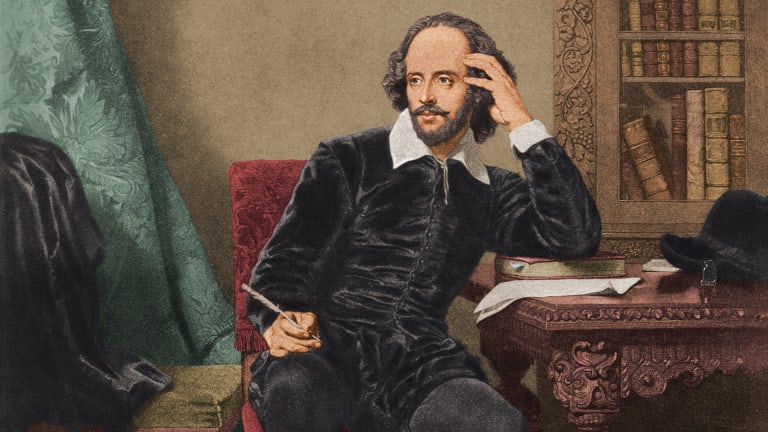
"The language of sexuality in some of the sonnets, which are definitely addressed to a male subject, leaves us in no doubt that Shakespeare was bisexual," Dr Edmonsdson said.
"It's become fashionable since the mid-1980s to think of Shakespeare as gay. But he was married and had children.
Theories
General authorship conspiracies
Theories that others wrote the corpus of work attributed to William Shakespeare (who was born in Stratford-upon-Avon in 1564 and died in 1616) emerged in the mid-19th century. Assorted comments by his contemporaries have been interpreted by some as suggesting that the London actor claimed credit for writing that wasn't his. But more than two centuries passed before alternative contenders began to be promoted-Francis Bacon; Christopher Marlowe; and Edward de Vere, the 17th earl of Oxford, prominent among them. (https://www.insidehook.com/article/books/inside-the-weird-world-of-shakespeare-conspiracy-theories )
New Yorker published an article about how the late Supreme Court justices John Paul Stevens and Antonin Scalia believed Shakespeare's works were written by Edward de Vere, the 17th Earl of Oxford. '
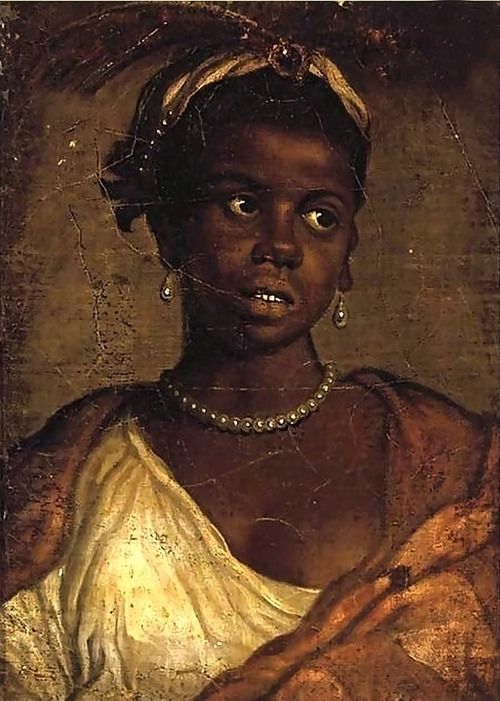
In May, The Atlantic published "Was Shakespeare a Woman?", an article by Elizabeth Winkler that proposed the aristocratic poet Emilia Bassano - despite admitting Bassno's "writing style bears no obvious resemblance to Shakespeare's."
Shakespare conspiracy theories are hardly new. Although no one is known to have contested Shakespeare's authorship during his lifetime, controversy has swirled since at least the 19th century, when Henry James said he was "haunted by the conviction that the divine William is the biggest and most successful fraud ever practiced on a patient world." Later, Charlie Chaplin was adamant that the true author "had an aristocratic attitude" and wasn't a glover's son. Sigmund Freud, Malcolm X, Helen Keller and even Shakespearean (or "Shakespeareian"?) actors like Derek Jacobi and Mark Rylance have all expressed doubts.
Until the 1800s, the debate was not about whether Shakespeare was a fraud, but rather whether he was really all that great. Ben Jonson and John Fletcher were generally thought to be superior in the centuries after his death. But critical evaluations shifted, as they are wont to do, and by the 19th century Shakespeare was becoming enshrined as the greatest English-language author of all time.
Not long after, the theories began to come out of hiding.
The history of Shakespeare conspiracy theories is almost as wacky as the theories themselves. It involves a host of crackpots and grifters, but also some of the world's most celebrated minds. Sigmund Freud, for example, used Hamlet as part of his Oedipus Complex on the belief that Shakespeare wrote the play following the death of his father. After Frued learned it was probably written before, he switched to the Earl of Oxford theory of authorship.

Another popular theory is that the better-educated playwright Christopher Marlowe was the true author. One problem? Marlowe died in 1593, long before Shakespeare's most famous plays - like Hamlet, Macbeth or Romeo and Juliet - were published. The theory goes that Marlowe faked his own death to become "the Elizabethan James Bond" while also finding time to pen the greatest plays of all time. Marlowe, it seems, was really busy.
Marlowe isn't the only supposed author who wrote plays from beyond the grave. As James Shapiro, author of the excellent book, Contested Will: Who Wrote Shakespeare?, noted about the Earl of Oxford theory: "Perhaps the greatest obstacle facing de Vere's supporters is that he died in 1604, before 10 or so of Shakespeare's plays were written." As if covertly authoring the greatest plays of all time wasn't enough, the Earl of Oxford theory is often spiced up with suggestions that he was also secretly the heir to the throne.
Romantic, bizarre and implausible theories tend to attract people with, well, other strange beliefs. While researching this article, I stumbled across an Oxfordian's blog in which the comments descended into a debate about whether Shakespeare was "'inspired' in some way by discarnate entities" or if he simply "had all the experience he needed from the king's court and abroad in previous lives."
But ghosts and secret Tudors are only the beginning. If you don't like those theories, you can you can take your pick from just about any person who lived at the time. Wikipedia's "List of Shakespeare authorship candidates" contains 87 names including the entire orders of the Jesuits and the Rosicrucians, the Queen of England and Mary Queen of Scots.
Throughout the years, backers of the different possible bards have tried everything they could to find some evidence of their preferred person. They've built a mechanical "cipher wheel" and searched for hidden codes in secret societies. They've held mock trials with Supreme Court members (the court decided for Shakespeare) and run computer analyses of the various claimants (conclusion: "far too many things 'don't fit' for Oxford to be a plausible claimant"). Ultimately, not a single bit of real evidence has been found for any other claimant.
So why are people so willing to believe evidence-free theories involving secret agents, faked deaths and unknown royals over the far simpler theory that the guy whose name is on the plays was the actual author?
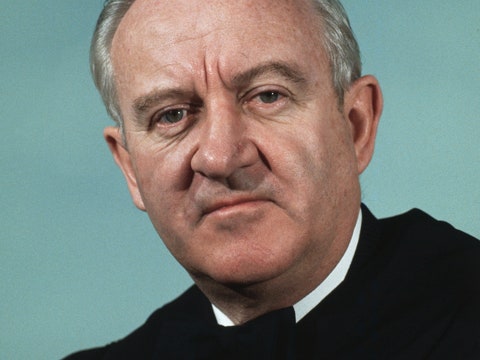
One answer is simple snobbery. It is impossible for many people to believe that a ("eww") commoner with minimal education could have written great plays. Justice Stevens mocked people for thinking "a commoner can be such a brilliant writer. Even though there is no Santa Claus, it's still a wonderful myth." As the New Yorker put it, a secret nobleman ghostwriter "explains why the plays are so good."
The reality is that most of the "evidence" given by anti-Stratfordians is either cherrypicked or incorrect. For example, much is made of the fact that Shakespeare never left England, yet his plays feature the geography of Europe. (Hint: maps existed.) Less mentioned is the fact that Shakespeare made basic geographical errors, such as claiming Bohemia (modern Czech Republic) had a coastline.
When it comes to known facts, the paper trail for Shakespeare is a lot longer than the anti-Stratfordians pretend.
It may be hard to imagine a "commoner" wrote such brilliant plays, but it's harder to imagine how this conspiracy would have actually worked in practice. The real Shakespeare was undisputedly a famous actor who was involved in the small and gossipy London theater world. He knew and worked with the other famous playwrights and actors. He was involved in the productions. He collaborated with other writers. If he was a fraud, especially an illiterate and uneducated one, wouldn't everyone have known it?
As the critic and host of Slate's Shakespeare podcast Isaac Butler said, "if Justice Stevens was a climate change denier (or super into "race science") and got an award from the Koch brothers, would you cover that story whimsically and without any serious rebuttal of that POV? No."
In addition to being a Shakespeare expert, Butler studied conspiracy theories for his own theatrical work, Real Enemies.:

"Conspiracy theories in general - and that's all we're really talking about here - arise when the very normal narrative-making function we all possess inserts some causality between data points that don't really go together," he tells InsideHook. "This is done for all sorts of reasons, but in general it's done to make sense of the world and, in particular, one's powerlessness within it. So the effects of climate change (for example) get explained as a government technology program to control the weather called HAARP. The anxiety is causing our brains to make a story, but the story it makes is factually wrong."
While there's no evidence that anyone else wrote the plays, as Butler says, "Shakespeare's biography and the documentary record about it does contain all sorts of gaps." It contains less gaps than many of his contemporaries, but the 16th and 17th century wasn't exactly known for expert record keeping. "Additionally," Butler mentions, "I do think for some people it is anxiety-producing that the son of a glover with an 8th-grade education created the greatest body of work of any writer in human history."
One thing the Shakespeare conspiracy theories show is how easily it is to distort facts about a subject that one doesn't truly know much about. If I tell you William Shakespeare only received a "grammar school" education, you might understandably think of your rather lax and recess-filled 20th-century elementary school American education and think, "I could never have written a play back then!" You likely don't know that in Shakespeare's time, the literary education was far more rigorous, and even as a plebeian, he would have read Cicero, Virgil, Erasmus and others in Latin.
This is the same way other, more dangerous conspiracy theories work. If you don't have a background in medicine, it's easy to be mislead about how vaccines work. If you don't know how the intricacies of the American electoral system actually works (and few Americans do), it's easy to believe that "millions" of illegal votes were cast in the 2016 election. Every day, the world gets more complex while most of us don't grow any more powerful. Conspiracies are one way to grab a bit of control.
Was Shakespeare A Woman? A fascinating, but highly unlikely and impractical conspiracy theory.
Was Shakespeare A Woman Story by Elizabeth Winkler
Winkler spends a lot of time diving into her own feelings and theories and talk about how the heroines of Shakespeare's works are remarkable for their time. She then discusses Emilia Bassano, a contemporary of Shakespeare and the daughter of Venetian immigrants. There are no real ties between Bassano and Shakespeare, and this theory has been thoroughly debunked. But the idea of Shakespeare actually being a woman, or him putting his name on the work of a woman, was intriguing. I found a more interesting candidate for this theory than Bassano.
The prevailing view, however, has been that no women in Renaissance England wrote for the theater, because that was against the rules. Religious verse and translation were deemed suitable female literary pursuits; "closet dramas," meant only for private reading, were acceptable. The stage was off-limits. Yet scholars have lately established that women were involved in the business of acting companies as patrons, shareholders, suppliers of costumes, and gatherers of entrance fees.
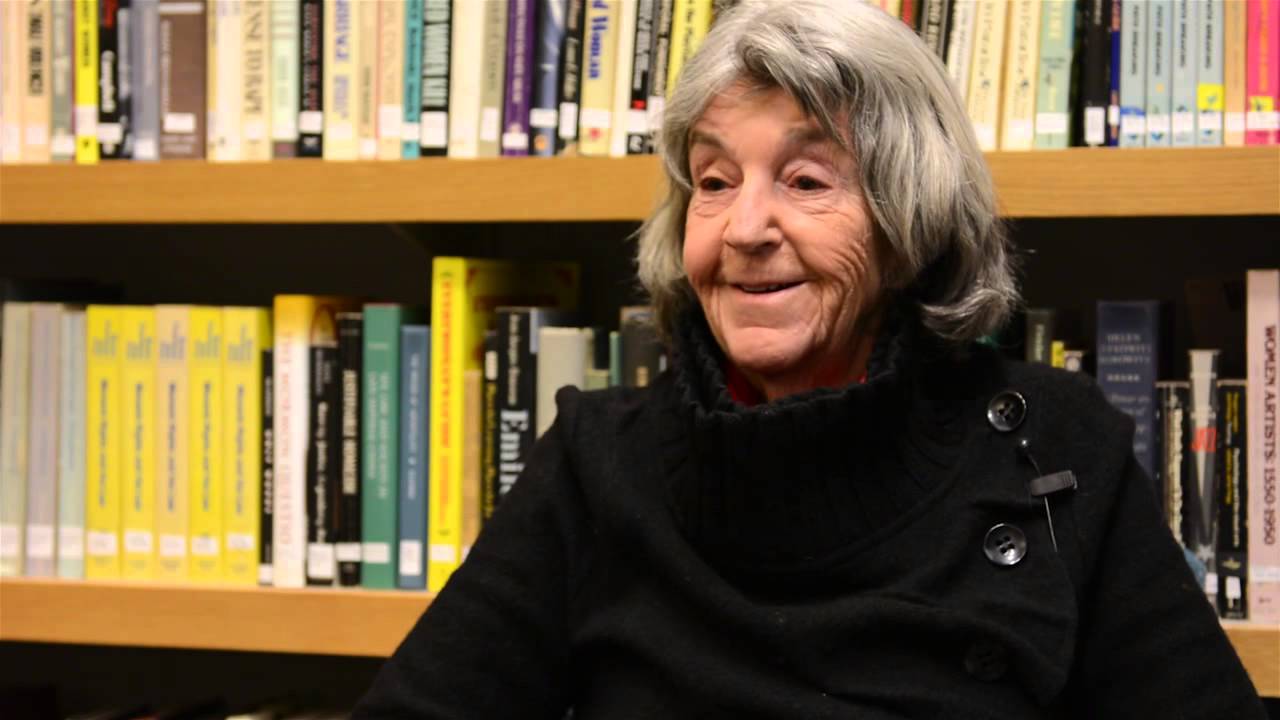
What's more, 80 percent of the plays printed in the 1580s were written anonymously, and that number didn't fall below 50 percent until the early 1600s. At least one eminent Shakespeare scholar, Phyllis Rackin, of the University of Pennsylvania, challenges the blanket assumption that the commercial drama pouring forth in the period bore no trace of a female hand.
So did Virginia Woolf, even as she sighed over the obstacles that would have confronted a female Shakespeare: "Undoubtedly, I thought, looking at the shelf where there are no plays by women, her work would have gone unsigned."
A tantalizing nudge lies buried in the writings of Gabriel Harvey, a well-known Elizabethan literary critic. In 1593, he referred cryptically to an "excellent Gentlewoman" who had written three sonnets and a comedy. "I dare not Particularise her Description," he wrote, even as he heaped praise on her.
All her conceits are illuminate with the light of Reason; all her speeches beautified with the grace of Affability ... In her mind there appeareth a certain heavenly Logic; in her tongue & pen a divine Rhetoric ... I dare undertake with warrant, whatsoever she writeth must needs remain an immortal work, and will leave, in the activest world, an eternal memory of the silliest vermin that she should vouchsafe to grace with her beautiful and allective style, as ingenious as elegant.
Who was this woman writing "immortal work" in the same year that Shakespeare's name first appeared in print, on the poem "Venus and Adonis," a scandalous parody of masculine seduction tales (in which the woman forces herself on the man)? Harvey's tribute is extraordinary, yet orthodox Shakespeareans and anti-Stratfordians alike have almost entirely ignored it.
Until recently, that is, when a few bold outliers began to advance the case that Shakespeare might well have been a woman. One candidate is Mary Sidney, the countess of Pembroke (and beloved sister of the celebrated poet Philip Sidney)-one of the most educated women of her time, a translator and poet, and the doyenne of the Wilton Circle, a literary salon dedicated to galvanizing an English cultural renaissance. Clues beckon, not least that Sidney and her husband were the patrons of one of the first theater companies to perform Shakespeare's plays. Was Shakespeare's name useful camouflage, allowing her to publish what she otherwise couldn't?
Mary Sidney
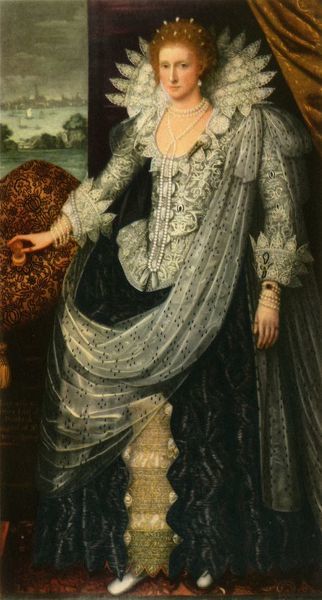
Mary Sidney Herbert, the Countess of Pembroke, was known to be a hot-tempered redhead, brilliant, multi-talented, strong, dynamic, passionate, generous, and a bit arrogant. She was born three years before Shakespeare and died five years after.
For two decades, she developed and led the most important literary circle in England's history, Wilton Circle, taking the mantle from her mentor, her brother Sir Philip Sidney, who died in the Queen's Protestant war. Her work, the work of her brother, and the work of many of the writers in her circle were used as sources for the Shakespearean plays.
She was devoted to literature and to creating great works in the English language. This was a brave mission since English was not considered a significant language at the time; there were great works in Italian, French, Latin, and Greek, but few in English. Nor was English spoken anywhere else in the world-rarely even in Scotland, Wales, or Ireland.
Mary Sidney exhibited a lifelong passion and commitment to her literary goals. In her versification of 127 psalms, she used 126 different verse forms. Pushing the boundaries of what was acceptable for women, she was the first woman to publish a play in English (a formal closet drama meant to be read aloud in an aristocratic home), and the first woman to publish original dramatic verse (which was allowed because it was for Queen Elizabeth). She was also the first woman who did not apologize for publishing her work.
She was trained in medicine and had her own alchemy laboratory where Adrian Gilbert (Sir Walter Raleigh's half brother) was her assistant. Recipes she developed are still extant, including a recipe for disappearing ink. Mary had an active interest in spiritual magic and was close with the "magician" John Dee and visionary Giordano Bruno (Bruno dedicated his two most important works to her brother). Adrian Gilbert (a fat, Falstaffian fellow and half-brother to Sir Walter Raleigh) designed her garden at Wilton House in a "heavily geometric and symbolic nature" in which it was possible to read "both divine and moral remembrances," a "personal iconographic program based on symbolic geometry."
She was fluent in Latin, French, and Italian, and is believed to have also known Welsh, Spanish, and probably Greek. She was one of the most educated women in England, comparable only to Queen Elizabeth. She was politically involved and outspoken, although she disliked the fawning and superficiality of the royal court.

Mary was an energetic woman: She held large parties. She sponsored an acting troupe. She traveled, rode horses, hunted, hawked. She bowled (lawn bowling), danced, sang, was famous for her needlework. Mary participated in theatrical productions at the royal court and developed Ludlow Castle into a cultural center that included just about every known theatrical troupe in the country. She played the lute and the virginals, and-if we can believe a German report-the violin. This German report also describes a musical code she invented with which she would send letters to friends in the form of musical compositions, each measure representing a letter of the alphabet.
Scholars believe the Shakespearean sonnets tell the story of the poet's passionate affair with a younger man, who then had an affair with a dark-haired, dark-eyed woman close to the poet's heart; this dark-haired woman was newly married, perhaps to a man named Will. No one has ever been able to positively identify the younger man or the dark-haired woman in relation to William Shakespeare (nor any of the other candidates).
But Mary's documented love life has a striking resemblance to these sonnets. After her husband died, Mary (43 years old) had an affair with a younger man, Dr. Matthew Lister (33 years old), whom she could not marry because of their differences in social status, although they were together for the rest of her life. There was strife in the relationship, however, when she thought her younger lover was having an affair with her dark-haired, dark-eyed niece, Mary Wroth (19 years old and newly married), whom Mary Sidney had helped raise. In reality, Mary Wroth was not having an affair with Dr. Lister, but with Will Herbert (also newly married), Mary Sidney's oldest son.
There are more questions, and more possibilities for who Shakespeare was.
How did the man born in Stratford acquire the wide-ranging knowledge on display in the plays-of the Elizabethan court, as well as of multiple languages, the law, astronomy, music, the military, and foreign lands, especially northern Italian cities? The author's linguistic brilliance shines in words and sayings imported from foreign vocabularies, but Shakespeare wasn't educated past the age of 13. Perhaps he traveled, joined the army, worked as a tutor, or all three, scholars have proposed. Yet no proof exists of any of those experiences, despite, as the Oxford historian Hugh Trevor-Roper pointed out in an essay, "the greatest battery of organized research that has ever been directed upon a single person."
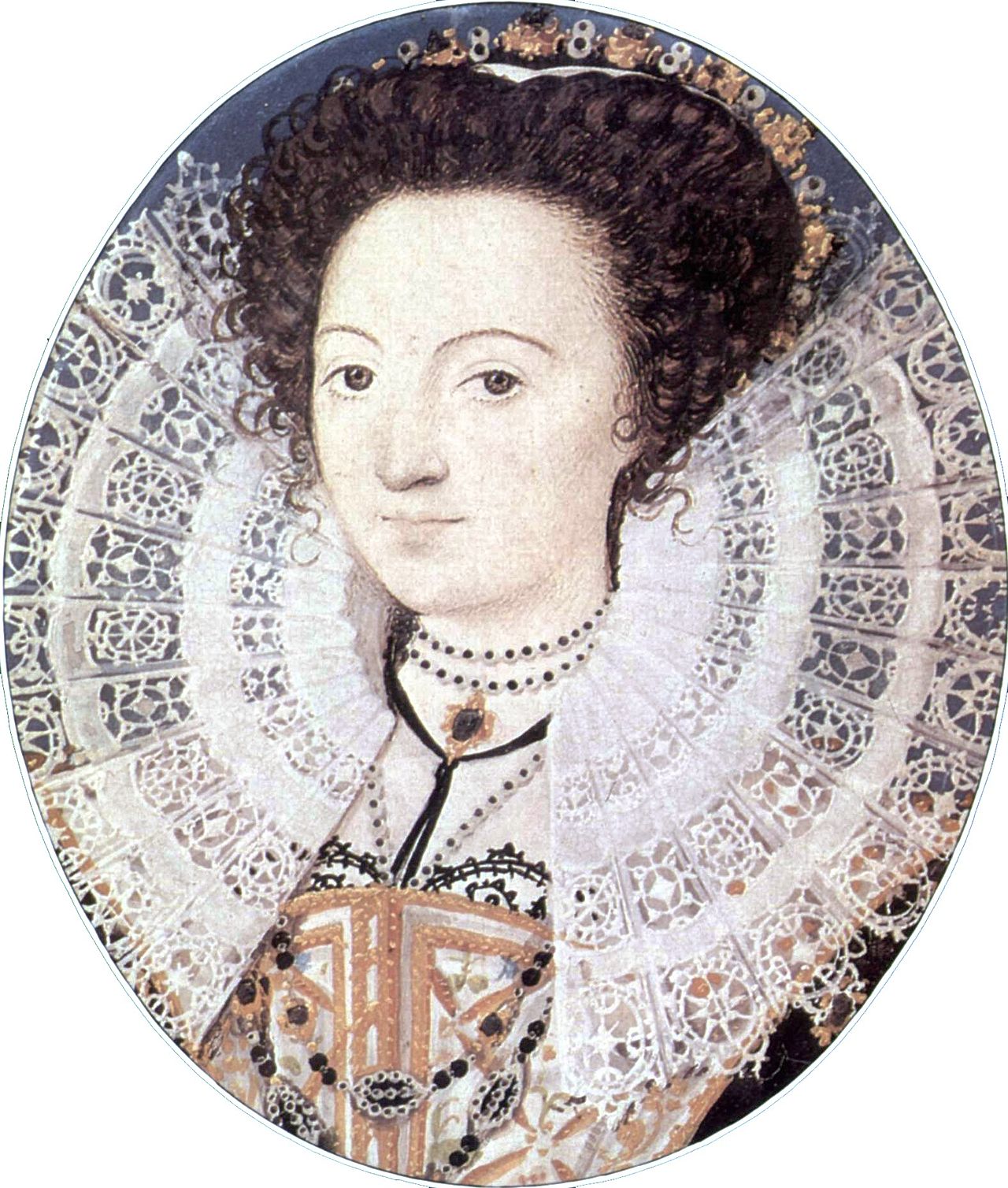
A contemporary of Shakespeare's named Emilia Bassano. Born in London in 1569 to a family of Venetian immigrants-musicians and instrument-makers who may have been Jewish-she was one of the first women in England to publish a volume of poetry (suitably religious yet startlingly feminist, arguing for women's "Libertie" and against male oppression).** Her existence was unearthed in 1973 by the Oxford historian A. L. Rowse, who speculated that she was Shakespeare's mistress, the "dark lady" described in the sonnets. In Emilia, the playwright Morgan Lloyd Malcolm goes a step further: Her Shakespeare is a plagiarist who uses Bassano's words for Emilia's famous defense of women in Othello.
Could Bassano have contributed even more widely and directly? The idea felt like a feminist fantasy about the past-but then, stories about women's lost and obscured achievements so often have a dreamlike quality, unveiling a history different from the one we've learned.
So where did the whole "Shakespeare conspiracy" even start? How did a question of who he was - and if he wrote his own plays - even start? You can thank Delia Bacon for that.
Delia Bacon

Delia Bacon hated William Shakespeare so passionately she lost her mind and her health trying to prove he didn't write those plays. She dismissed him as a vulgar, illiterate deer poacher and 'Lord Leicester's stable boy.' She preferred to believe Francis Bacon authored the plays - and that she was related to Bacon (she wasn't).
Delia Bacon must have had brains and charisma, for she enlisted Ralph Waldo Emerson, Thomas Carlyle and Nathaniel Hawthorne in her tragicomic campaign to debunk Shakespeare's authorship. She crossed the Atlantic to conduct her research, hell-bent on opening Shakespeare's tomb to find the proof she just knew Bacon had hidden.
Though people viewed her as a crank and a madwoman, today literary critics praise her scholarship and originality.
Delia Bacon was born on Feb. 2, 1811 in a log cabin in Tallmadge, Ohio. Her father, a Congregationalist minister from New Haven, was trying to bring Puritanism to the Ohio frontier. He died when Delia was six, and the family returned to New England.
Her education ended at 14. She tried to start her own school. Despite suffering from malaria and migraine headaches, she won $100 for a short story from the Philadelphia Saturday Courier, beating out Edgar Allan Poe. She read widely and became a respected professional lecturer, traveling around the East Coast teaching history and literature for women.
At 36 she lived in a boardinghouse in New Haven, where she had a disastrous love affair with Alexander MacWhorter, a 23-year-old theology graduate at Yale. Delia's brother Leonard, also a minister, got involved. He announced Delia was engaged to MacWhorter, who quickly backed off. Leonard then demanded MacWhorter stand trial before a panel of 23 ministers. MacWhorter claimed Delia pursued him; Delia claimed he led her on. Witnesses said MacWhorter had first chased Delia. Then came the verdict: 12 for MacWhorter, 11 for Delia.
The scandal went national, mortifying Delia Bacon.
She then threw herself into her campaign to discredit Shakespeare. She called him 'a standing disgrace to genius and learning.' She tried to persuade Ralph Waldo Emerson, who she met through Elizabeth Peabody. Emerson introduced her to a wealthy friend who paid for her to spend a year in England researching her theory.
Emerson also encouraged Putnam's Monthly to give her assignments. He gave her a letter of introduction to his friend, the English historian Thomas Carlyle.
Carlyle shrieked when Delia Bacon told him her theory about Shakespeare.
Delia Bacon didn't do any hard research in English libraries or museums. She just knew the proof of her theory was in the plays themselves. She believed that Bacon, Walter Raleigh and Edmund Spenser wrote Shakespeare's dramas. And she grew obsessed with the idea of opening Bacon's tomb for proof.
For two years she worked alone in an unheated room on her book about Shakespeare. Her first article for Putnam's Monthly appeared toward the end of her third year in London. The readers' negative reaction and her lack of research prompted Putnam's to drop her.
She needed money. Desperate, she reached out to the U.S. consul in Liverpool, Nathaniel Hawthorne - Emerson's friend and Peabody's brother-in-law. Hawthorne paid her debts, read her work and helped her find a publisher. He even wrote the forward for the book, called The Philosophy of the Plays of Shakespeare Unfolded.
But Hawthorne infuriated her by writing in the forward that he didn't believe her.
While waiting for the book's publication, she tried to get into Shakespeare's tomb to find the proof she knew Bacon had hidden there. Night after night she came into the church with a lantern and stared at the altar. The vicar considered letting her into the tomb. She fell ill and gave up. Her brother Leonard thought she had lapsed into insanity and begged her to come home.
When she finally had the 682-page book published, no one read it - except critics, who trashed it. Delia became suicidal, delusional and feverish. She was committed to an asylum in England, then sent home. She died in an asylum in Hartford on Sept. 2, 1859, at age 48.
In his book Contested Will, Who Wrote Shakespeare, James Shapiro praised Delia Bacon for anticipating modern criticism. He also credited her for first recognizing that Shakespeare foretold England's political upheavals. Had she just stopped there, he wrote, people would not have dismissed her as a crank and a madwoman.
As the Shakespeare professor Stephen Marche has said, the idea that Shakespeare didn't write his plays "has roughly the same currency as the faked moon landing does among astronauts." But most of us aren't astronauts. And most of us aren't scholars of Elizabethan theater. All we do is listen to the people who have actually studied these subjects and hope they agree with Mariana in All's Well That Ends Well when she remarks that "no legacy is so rich as honesty."
Was I getting carried away, reinventing Shakespeare in the image of our age? Or was I seeing past gendered assumptions to the woman who-like Shakespeare's heroines-had fashioned herself a clever disguise? Perhaps the time was finally ripe for us to see her.
Doubt is rooted in an empirical conundrum. Shakespeare's life is remarkably well documented, by the standards of the period-yet no records from his lifetime identify him unequivocally as a writer. The more than 70 documents that exist show him as an actor, a shareholder in a theater company, a moneylender, and a property investor. They show that he dodged taxes, was fined for hoarding grain during a shortage, pursued petty lawsuits, and was subject to a restraining order. The profile is remarkably coherent, adding up to a mercenary impresario of the Renaissance entertainment industry. What's missing is any sign that he wrote.
No such void exists for other major writers of the period, as a meticulous scholar named Diana Price has demonstrated. Many left fewer documents than Shakespeare did, but among them are manuscripts, letters, and payment records proving that writing was their profession. For example, court records show payment to Ben Jonson for "those services of his wit & pen." Desperate to come up with comparable material to round out Shakespeare, scholars in the 18th and 19th centuries forged evidence-later debunked-of a writerly life.
To be sure, Shakespeare's name can be found linked, during his lifetime, to written works. With Love's Labour's Lost, in 1598, it started appearing on the title pages of one-play editions called "quartos." (Several of the plays attributed to Shakespeare were first published anonymously.) Commentators at the time saluted him by name, praising "Shakespeare's fine filed phrase" and "honey-tongued Shakespeare." But such evidence proves attribution, not actual authorship-as even some orthodox Shakespeare scholars grant. "I would love to find a contemporary document that said William Shakespeare was the dramatist of Stratford-upon-Avon written during his lifetime," Stanley Wells, a professor emeritus at the University of Birmingham's Shakespeare Institute, has said.
By contrast, more than a few of Shakespeare's contemporaries are on record suggesting that his name got affixed to work that wasn't his. In 1591, the dramatist Robert Greene wrote of the practice of "underhand brokery"-of poets who "get some other Batillus to set his name to their verses." (Batillus was a mediocre Roman poet who claimed some of Virgil's verses as his own.) The following year, he warned fellow playwrights about an "upstart Crow, beautified with our feathers," who thinks he is the "onely Shake-scene in a countrey." Most scholars agree that the "Crow" is Shakespeare, then an actor in his late 20s, and conclude that the new-hatched playwright was starting to irk established figures. Anti-Stratfordians see something else: In Aesop's fables, the crow was a proud strutter who stole the feathers of others; Horace's crow, in his epistles, was a plagiarist. Shakespeare was being attacked, they say, not as a budding dramatist, but as a paymaster taking credit for others' work. "Seeke you better Maisters," Greene advised, urging his colleagues to cease writing for the Crow.
So when Shakespeare, now a wealthy man, retired to Stratford, he was meticulous about bequeathing his properties and possessions (his silver, his second-best bed). Yet he left behind not a single book, though the plays draw on hundreds of texts, including some-in Italian and French-that hadn't yet been translated into English. Nor did he leave any musical instruments, though the plays use at least 300 musical terms and refer to 26 instruments. He remembered three actor-owners in his company, but no one in the literary profession. Strangest of all, he made no mention of manuscripts or writing. Perhaps as startling as the gaps in his will, Shakespeare appears to have neglected his daughters' education-an incongruity, given the erudition of so many of the playwright's female characters. One signed with her mark, the other with a signature a scholar has called "painfully formed."

Full Source List
- https://www.theatlantic.com/entertainment/archive/2019/06/shakespeare-was-not-woman/590794/
- https://theweek.com/articles/841609/what-shakespeare-shakespeare
- https://www.rnz.co.nz/national/programmes/sunday/audio/2018701971/elizabeth-winkler-was-shakespeare-a-woman
- https://www.marysidneysociety.org/
- https://www.jstor.org/stable/372745
- https://www.telegraph.co.uk/news/2017/08/18/did-woman-write-shakespeares-plays-globe-stage-new-play-dark/
- https://www.amazon.com/Sweet-Swan-Avon-Woman-Shakespeare/dp/1463671873
- https://www.snopes.com/fact-check/amelia-bassano-william-shakespeare/
- https://www.shakespeareanauthorshiptrust.org.uk/pages/candidates/sidney.htm
- https://www.britain-magazine.com/features/history/tudors/mary-sidney-tudor/



